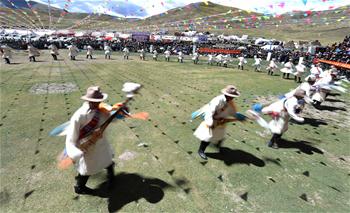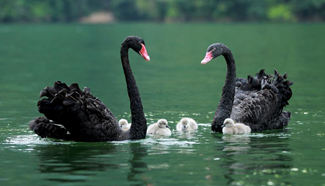SYDNEY, Sept. 9 (Xinhua) -- An Australian-led study has found catastrophic declines in wilderness areas around the world in the past 20 years with the hardest hit being the Amazon and Central Africa.
Researchers from the University of Queensland led by Associate Professor James Watson have described the findings as "alarming losses" comprising a tenth of global wilderness since the 1990s.
The findings from the paper titled "Catastrophic Declines in Wilderness Areas Undermine Global Environment Targets" was published in science magazine Current Biology on Friday.
"The findings underscore an immediate need for international policies to recognize the value of wilderness and to address the unprecedented threats it faces," Watson.
Watson said in the past much attention had been given to the loss of species and hardly any toward the losses of large-scale ecosystems, adding that such mindset needed to be changed.
Watson researchers compared their current map of wilderness to one produced by the same means in the early 1990s.
"Their updated map shows a total of 30.1 million square km (more than 20 percent of the world's land area) now remains as wilderness, with the majority in North America, North Asia, North Africa, and the Australian continent," he said.
However, comparisons between the two maps showed an estimated 3.3 million square km (almost 10 percent) of wilderness area had been lost in the intervening years.
The losses occurred mostly in South America, which experienced a 30-percent wilderness loss, and Africa, with 14 percent loss.
"The amount of wilderness loss in just two decades is staggering and very saddening," Watson said. "You cannot restore wilderness."
"The only option is to proactively protect what is left," he said.










